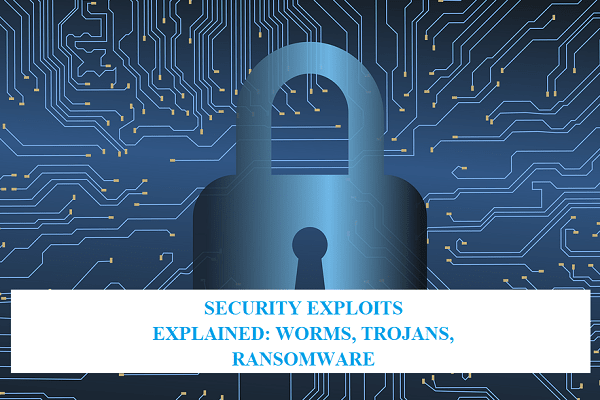Contents
The IT infrastructure of a business is key to its growth and development. As the driving force of your business, it is important to ensure that it maintains optimal operation. However, sometimes, one seems to ignore the importance of the IT infrastructure, therefore leaving it prone to multiple problems such as network issues, and most importantly, security breaches.
A security breach is a serious issue capable of affecting your business operations. Unfortunately, most business owners or IT heads aren’t often aware of its presence. To ensure that you can spot a security breach and fix it before it ravages your IT infrastructure, we have explained some of the most common types of security breaches.
-
Worms
Worms, in this context, are not the typical creepy worm that you know. A computer worm—also known as malware—is a dangerous self-replicating software program that aims to infect other computers while remaining present on infected systems.
Worms can wreak havoc on your business database by altering and destroying files. In addition, this malware can introduce malicious software onto a computer, thus strengthening its hold on the IT infrastructure of its host.
Sometimes, the sole aim of a computer worm is to replicate itself, consuming system resources, like bandwidth and hard drive, by overwhelming a shared network. Aside from ruining a computer’s resources, worms can give access to its host system, steal data, and cause other damages.
How to detect computer worms
- Observe your hard drive space
- Keep an eye on the speed and performance of your computer
- Take note of missing new files
- Trojans
A Trojan horse, or Trojan (for short), is another type of malware you need to be wary of. This malware, which often takes the form of legitimate software, is one of the greatest weapons of cyber thieves and hackers used to gain access into host systems.
Believing a Trojan to be legit software, users are usually tricked into executing the malware on their computer system. Once activated, this malware can enable hackers to spy on you, steal important data, and gain control of your system via a backdoor created by the malware.
Since a Trojan can only function when activated by a user, your ability to identify this malware is important to safeguard your system from its effect. Hiring a competent technical support company should help identify any potential threat by Trojans or worms and render them inactive before they wreak havoc on your system.
Also read: Top Features You Need in a Cloud Security Platform
How to detect Trojan virus
- Abnormal changes on your computer
- Disabled antivirus or security software
- Changes in web browser software
- Unusual messages on your screen
- Ransomware
A ransomware attack is very popular, probably because it involves victims paying expensive ransom to the attackers. This type of security breach—which is a little different from a computer worm or a Trojan—involves threats to publish or block victims from accessing their computer system data until they agree to pay a ransom.
Attackers often encrypt victims’ systems, thereby blocking all access until the victims meet their requirements. In most cases of a ransomware attack, victims are often obliged to pay the ransomware—which usually runs into millions of dollars—to gain access to their system and prevent the sharing of sensitive data.
How to detect a ransomware attack
- Inability to access files
- Keep an eye out for known file extensions
- Keep an eye out for excessive file renames
- Suspicious emails
Conclusion
Regularly, businesses experience IT failures resulting from security breaches. Like every business, your IT infrastructure is prone to security breaches that could wreak havoc on your business. Hopefully, with the insights outlined above and with the help of your IT support, you should be able to detect these breaches and fix them before they escalate. The earlier you notice a security breach on your IT infrastructure, the better for your business.





